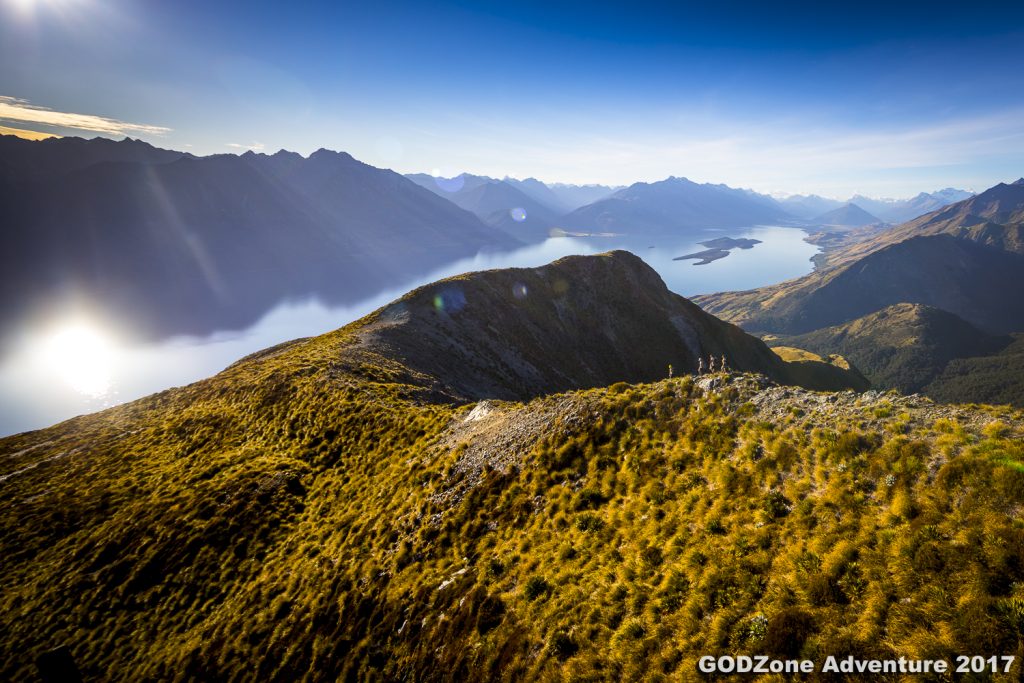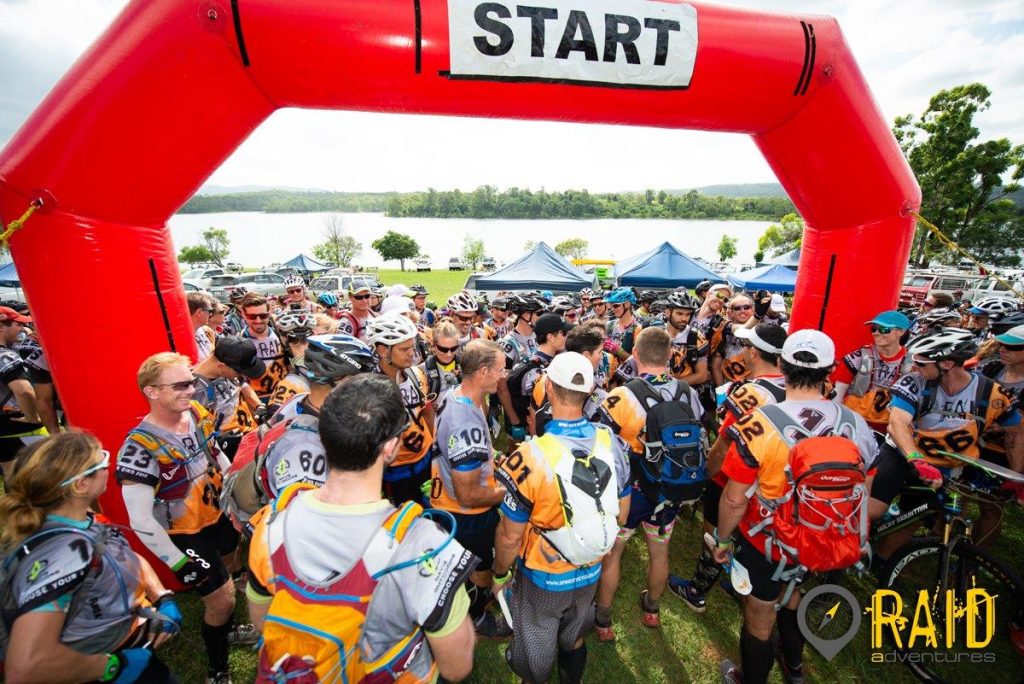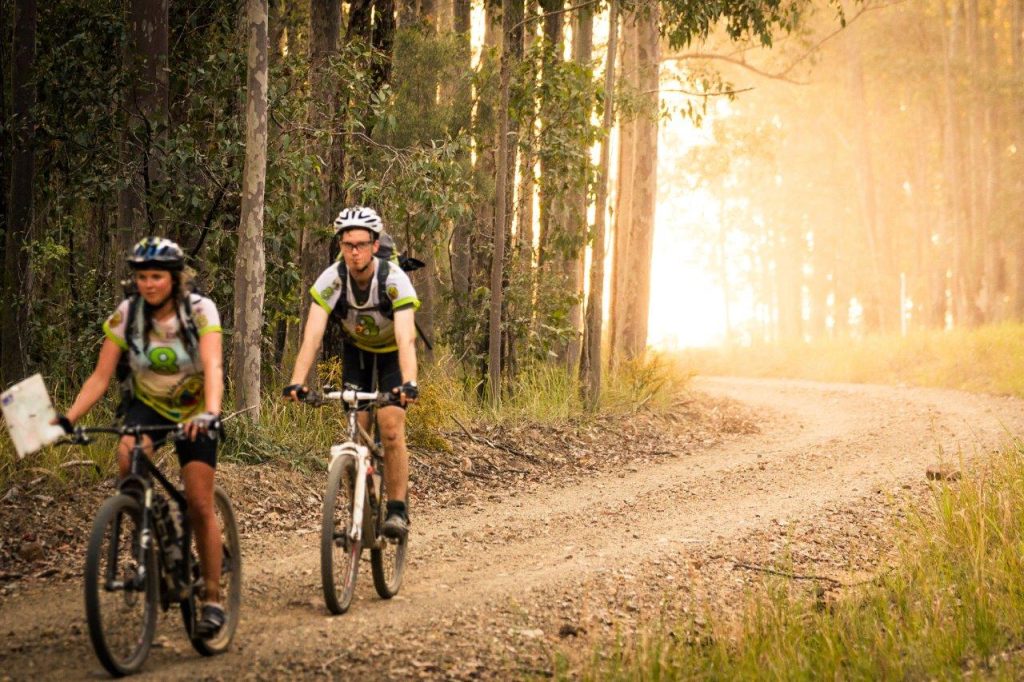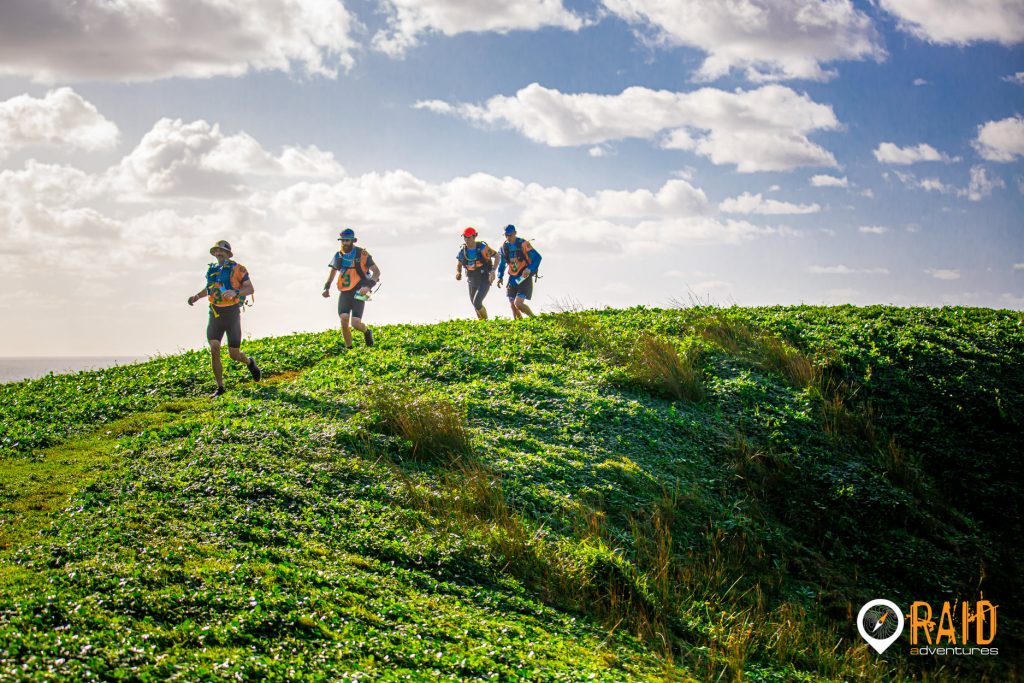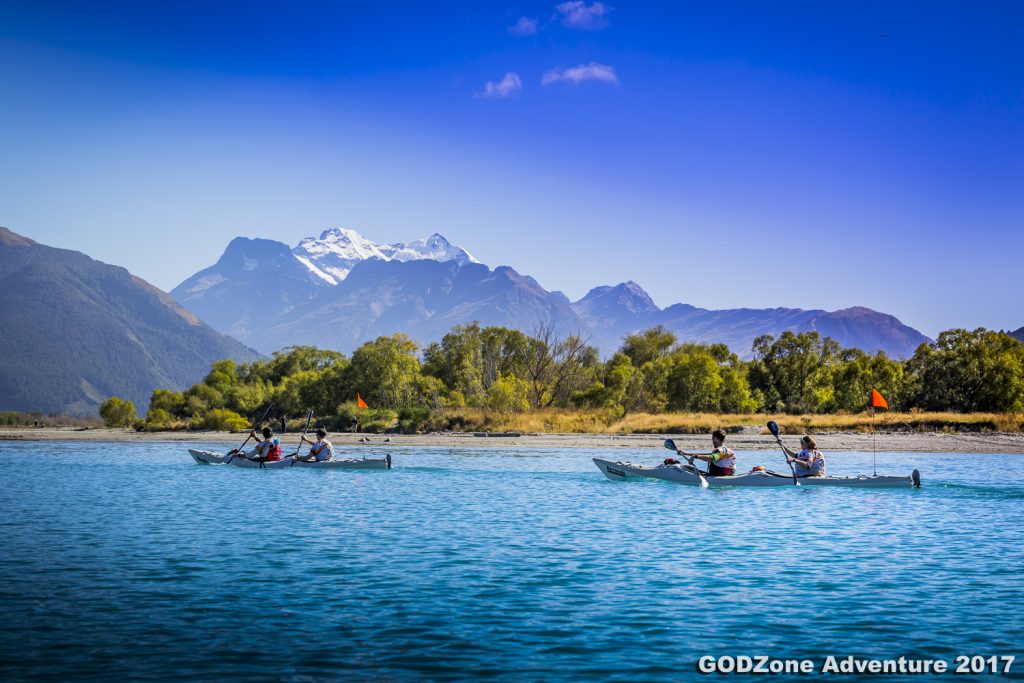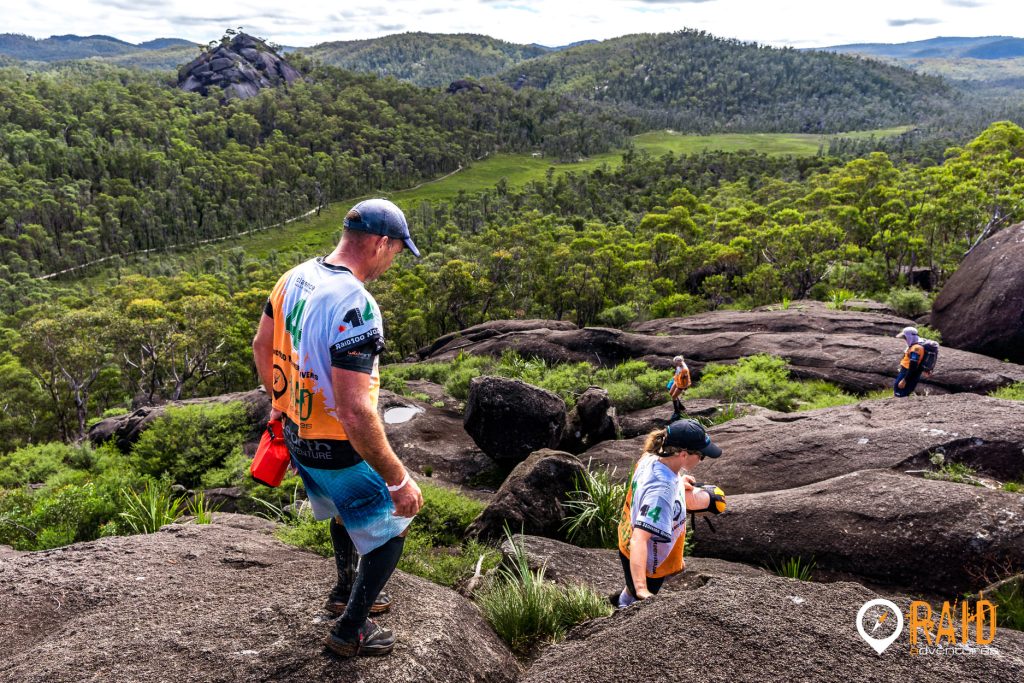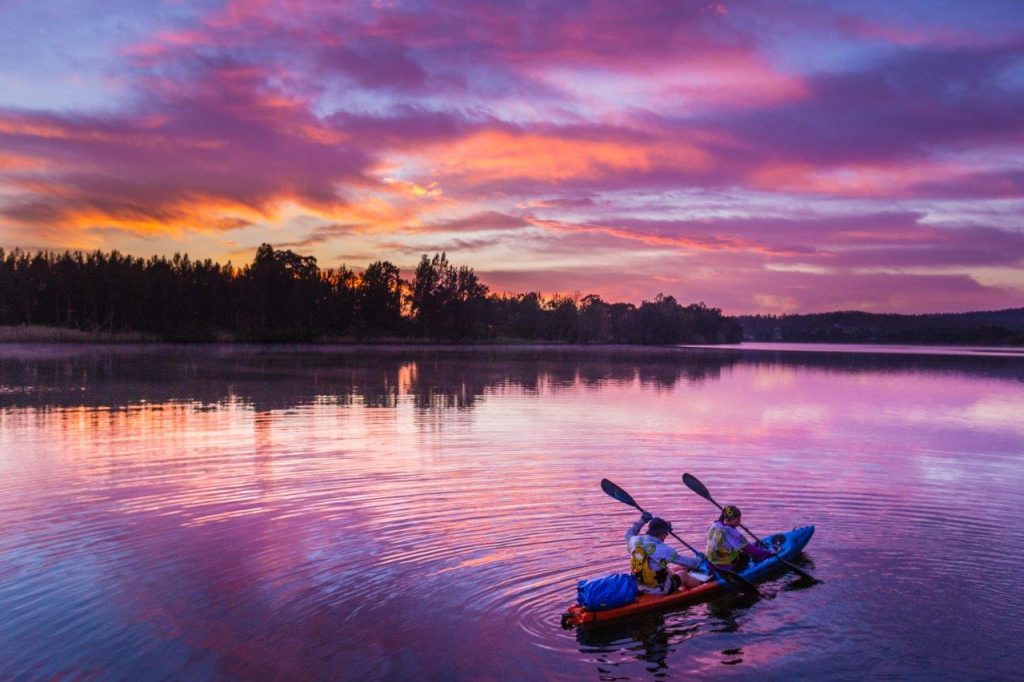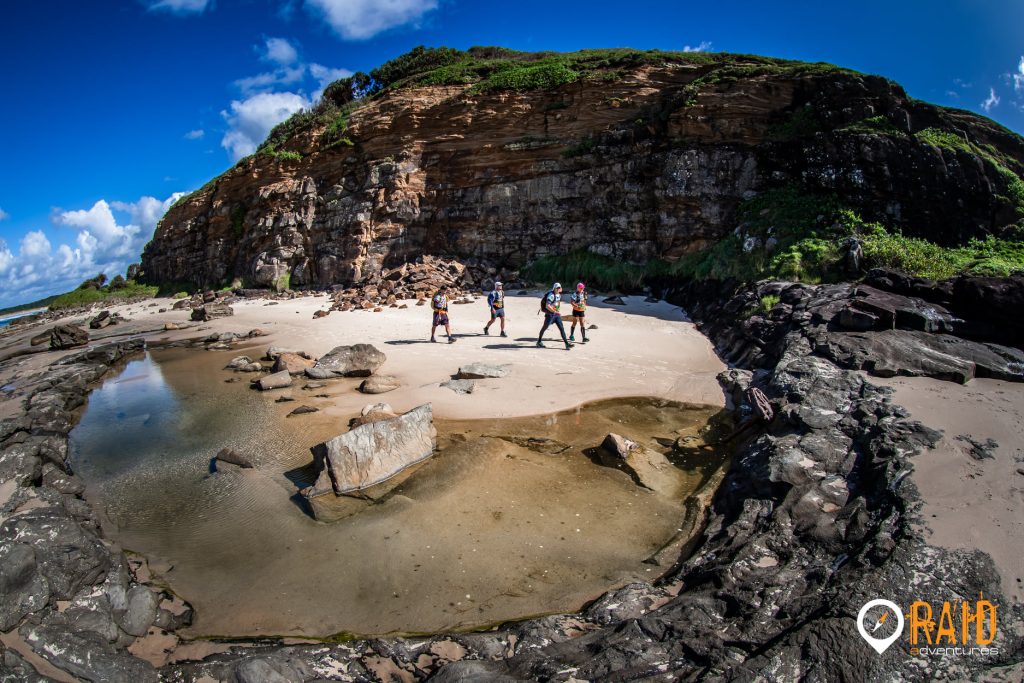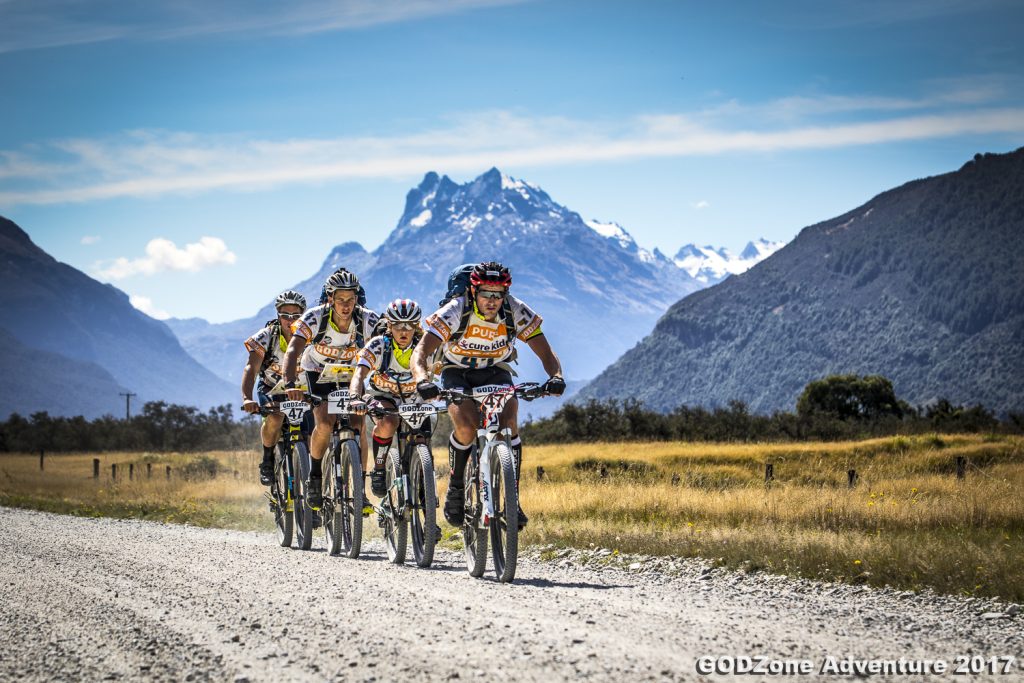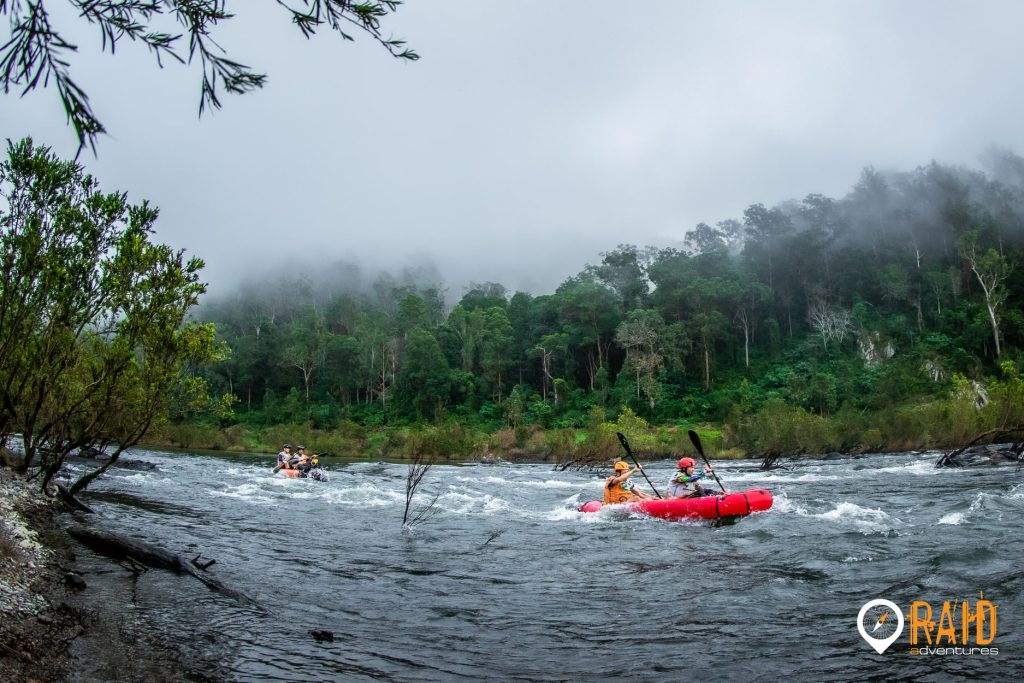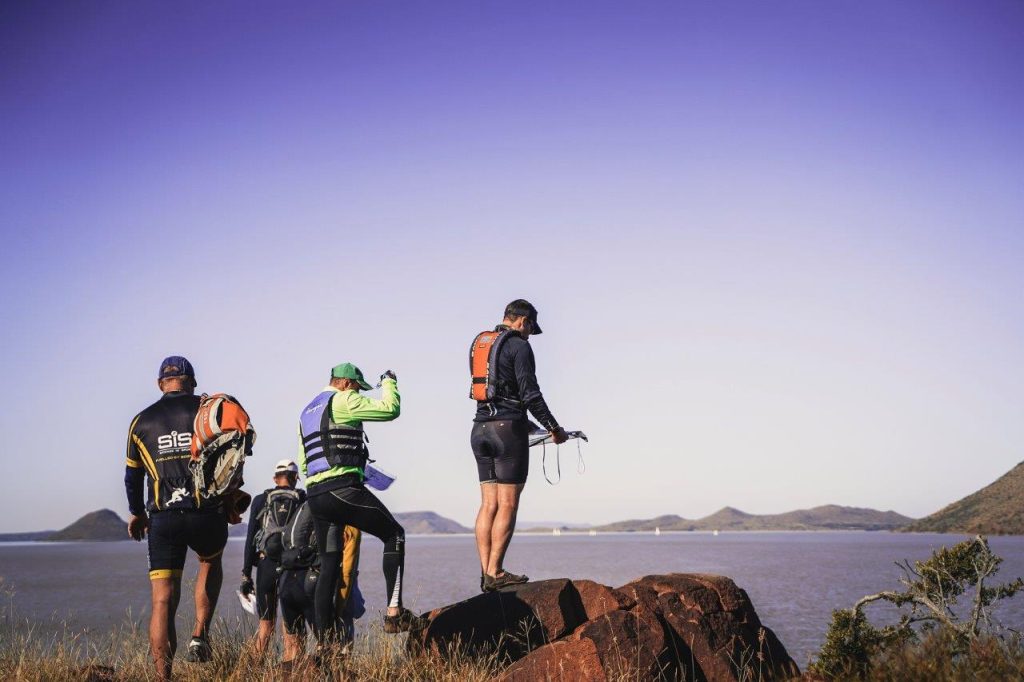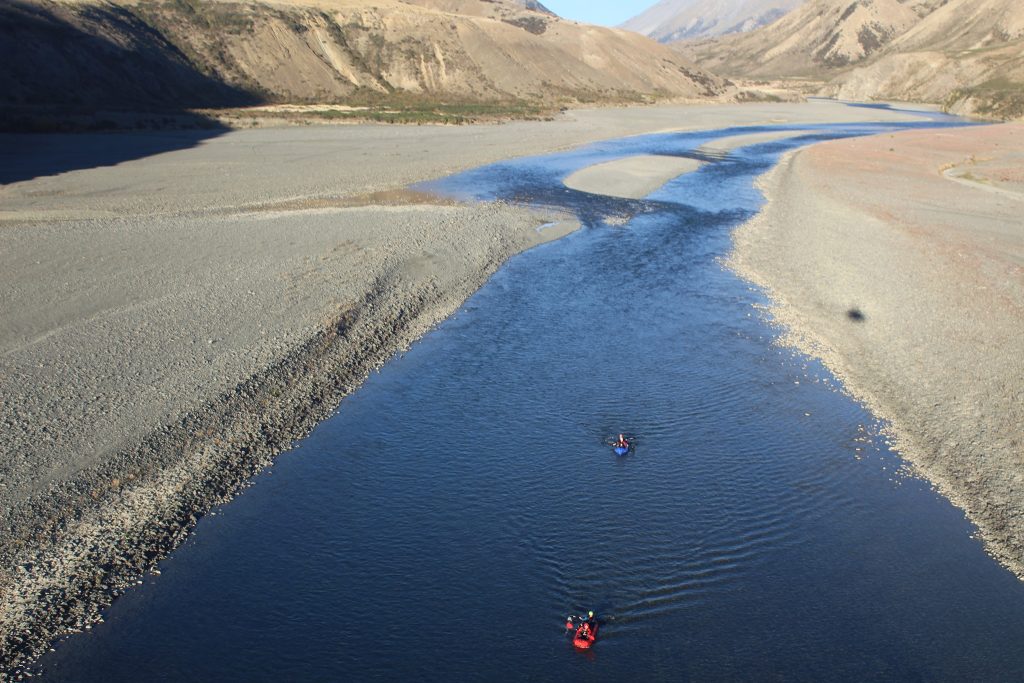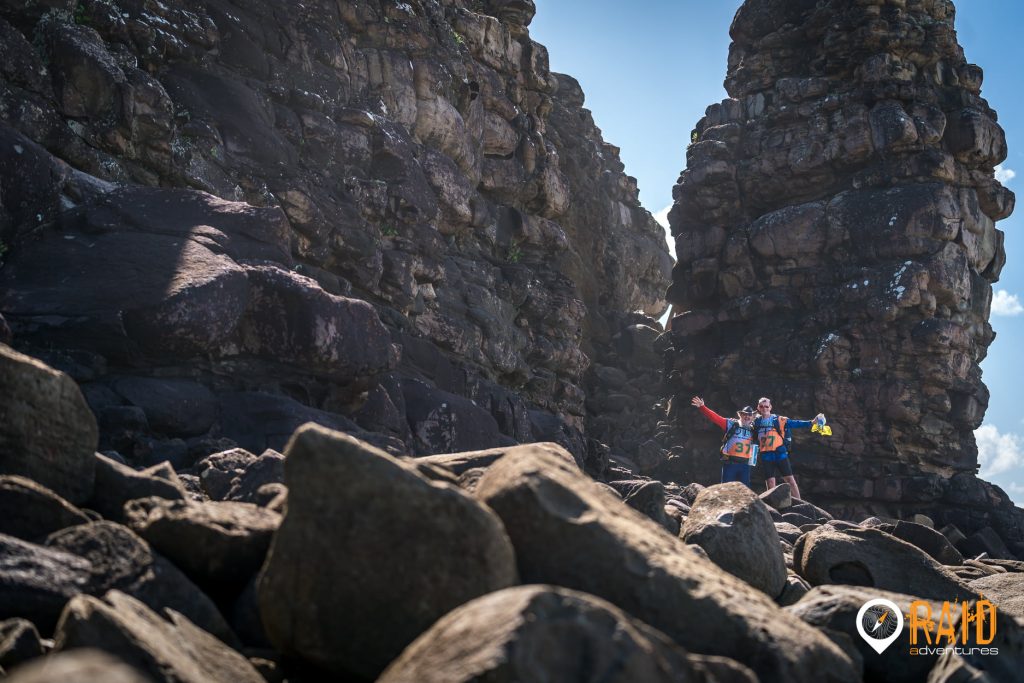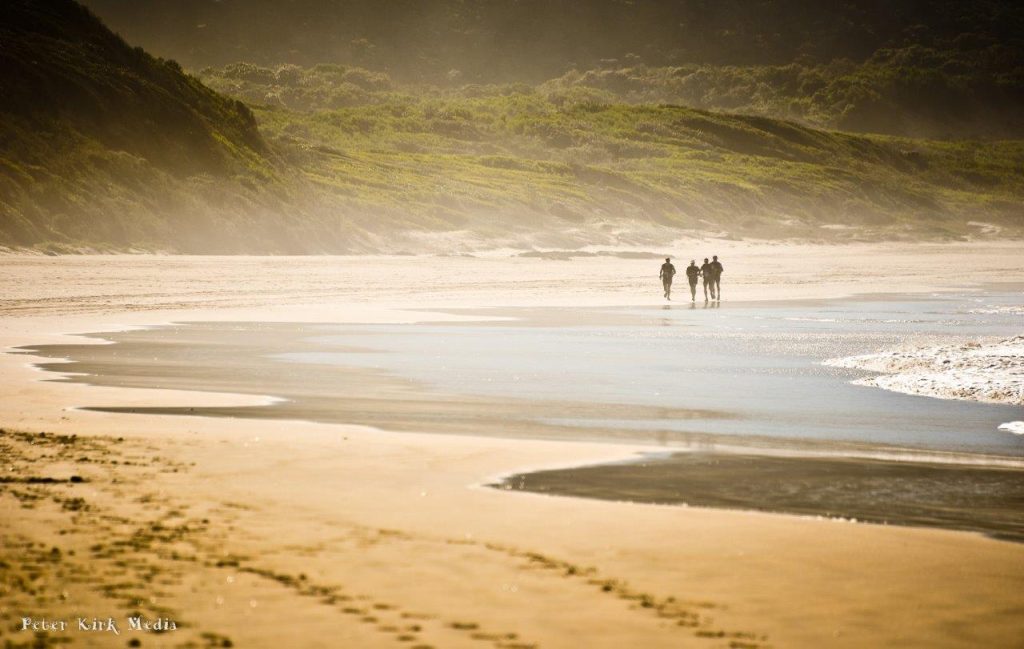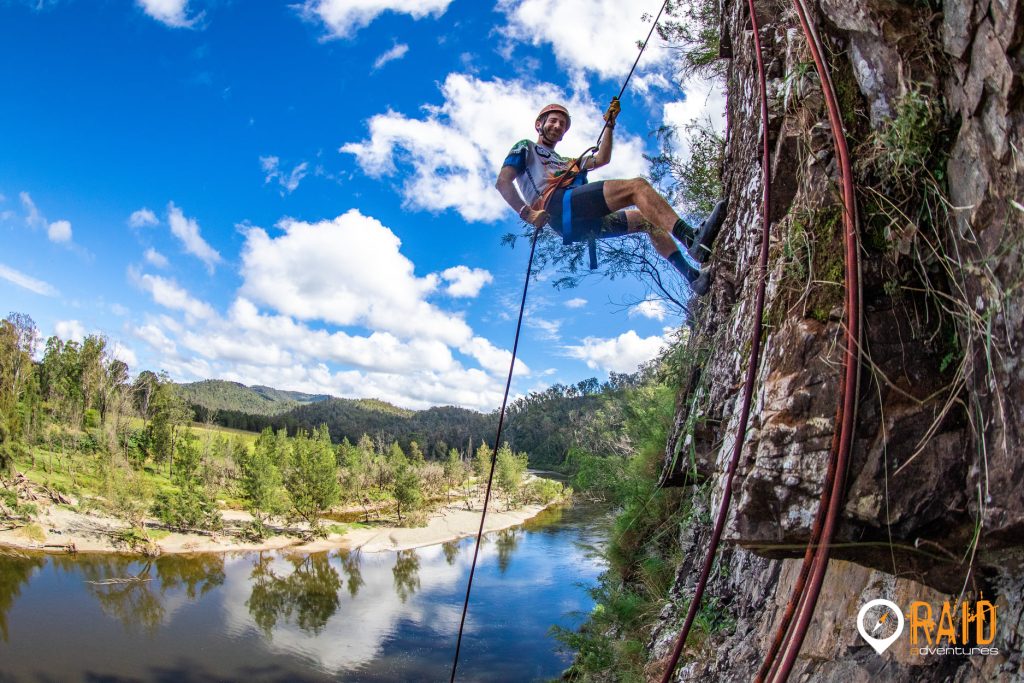ADVENTURE RACING HISTORY
Excerpt of extended version sourced from HERE.
ADVENTURE COMPETITIONS
Adventure Racing (also called Raids, Quests and Multisport depending on the region) are timed multi-sport races that include two or more sport disciplines. Events can last from several hours to a week in length. Most events require teams of 2 or more people, typically co-ed, although some include solo categories. The principal disciplines in adventure competitions include racing treking, cycling and paddling, although races may include orienteering, climbing skills, paragliding, scuba diving, horse riding, skiing, sailing, windsurfing, white-water rafting, caving, kick-biking, skating and other skills requiring non-motorized means of transportation.
Follow live coverage of Adventure Races around the world at AR LIVE COVERAGE
EARLY RACES
The earliest documented adventure competition is the Mount Baker Marathon (WA, USA) which ran in 1911 – 1913 and inspired the Ski to Sea Race, which included cross-country skiing, downhill skiing or snowboarding, running, road biking, canoeing, cyclocross biking and kayaking.
Modern adventure competitions can be traced to the two-day Karrimor International Mountain Marathon, first held in 1968. Now known as the “Original Mountain Marathon”, OMM requires two-person teams to navigate mountainous terrain while carrying all the supplies required to support themselves through the double-length marathon run.
In 1980, the Alpine Ironman was held in New Zealand. Individual competitors ran, paddled, and skied to a distant finish line. Later that year, the Alpine Ironman’s creator, Robin Judkins launched the better-known Coast to Coast race which includes trail running, cycling and paddling.
Australia’s 2-day WildTrek ran from 1981 through 2004 with 2-person teams competing in Nordic Skiing, orienteering, wild water kayaking, mountain biking and road cycling. The race evolved into the Spring, Summer and Winter Classic series, adding ocean kayaking, flatwater kayaking, windsurfing, and beach running.
The first expedition-length adventure race, a week-long, North American event called the Alaska Mountain Wilderness Classic debuted in 1982. The Classic allowed only wilderness travel and no support teams. Less than 30% of its 150-mile length was on trails.
One of many multisport television show competitions was Survival of the Fittest (1974-1997) , created by IMG founder Mark McCormack. This was a multi day stage competition for invited world class and Olympic athletes that included skills common to contemporary adventure, obstacle, and multisports. Competitors included adventure race champions such as Rebecca Rusch (USA), John Howard (NZL), Steve Gurney (NZL), Pat Csizmazia (USA), and Ian Adamson (AUS).
THE GOLDEN YEARS
In 1989, the modern era of adventure competitions arrived with Gerald Fusil’s launch of the Raid Gauloises in New Zealand. Inspired by the Paris-Dakar Rally, Fusil envisioned an expanded expedition-style race in which competitors would rely on their own strength and abilities to traverse great and challenging terrain. The race included all the modern elements of adventure racing, including mixed-gender teams competing in a multi-day 400+ mile race. The Raid Gauloises became the Raid Adventure Racing World Championships which included a World Series, the “Raid World Cup” and ran until 2006. Building on Fusil’s concept, the inaugural Southern Traverse was held in 1991.
In the early 1990s, Mark Burnett read an Los Angeles Times article about Raid Gauloises and was inspired to compete and bring the race to the USA and promote the race as a major televised sporting event. After purchasing the rights from Gerald Fusil, Burnett launched the first “Eco-Challenge” race in 1995. Burnett promoted his event with Emmy-award-winning films (tapping the talent of Mike Sears to produce the films for the first two events). This incarnation of Eco-Challenge was last held in 2002 when Burnett shifted his focus to Survivor, the Contender, the Apprentice and other reality-based television shows. With the Eco-Challenge also came the name “adventure race”, a phrase coined by journalist and author Martin Dugard, to describe the class of races embodied by the Raid and Eco-Challenge.
Multi-day stage races took off and established adventure competitions in Asia when the Mild Seven Outdoor Quest launched in 1997 in China. This race was created by IMG’s Nick Freyer and was the first race to offer a $200,000 prize purse. The format and money attracted elite adventure racers, triathletes and endurance athletes. The last MSOQ was produced in 2004 in Malaysian Borneo. All races aired on ESPN Star Sports.
In 2002, Bill and Denis Watkins (of Seagate fame) launched the Subaru Primal Quest, the richest and adventure race to date, with a $250,000 prize purse. Echo Entertainment produced the show, now available on Amazon Prime. Primal Quest ran in 2002, 2003, 2004, 2006, 2008, 2009, 2015 to 2018.
EVOLUTION OF THE SPORT
Sprint Adventure Races were popular in the United States from 1997 to 2010, with national series and championships like the HiTec, Balance Bar and Muddy Buddy races attracting 1,000 or more athletes to each event. Muddy Buddy started as a sprint adventure racing series in 1999 with trail running and mountain biking, and was later branded as a mud run and Obstacle Course Race as these races gained popularity. Sprint races and the Outdoor Quest introduced man made obstacles called “adventure skills” in 1997 and these were adopted to some extent by Obstacle Course Races.
The 24-hour race format was popularized by the Balance Bar 24-hour Series and championships and many other stand-alone races emerged in the 1990s and 2000s. Each Balance Bar series race paid out $25,000 in prize money.
In 2001, Southern Traverse Ltd owners Geoff Hunt and Pascale Lorre held the Discovery Channel Adventure Race World Championships held in Switzerland with Team Nokia Adventure crossing the finishing line first. The concept of a world championship lay dormant until it was revived in 2004 by Southern Traverse Ltd as the Adventure Racing World Championships, with Canada’s Raid the North Extreme. Nike ACG Balance Bar won the inaugural competition. The race was taken over by event management company Geocentric Pty Ltd in 2011, and they now own and managed the AR World Series and the AR World Championships as of 2022.
MODERN ADVENTURE RACING
Adventure Racing went into decline starting in 2007 when most of the major international races and the associated media, advertising, and sponsorships left the sport. The last major race with international broadcast was the 2004 Raid Adventure Racing World Championship, which wrapped up in 2006, ending 18 years of world series and world championship races. Up to that point the international championship races and series, the Raid, Raid World Cup, Eco-Challenge, Outdoor Quest, Primal Quest, and Balance Bar Series’ paid over $950,000 in prize money each year. These events supported more than 100 teams that competed in the “Majors.”
The AR World Series started as the Adventure Racing World Championships Series in 2004 with seven international adventure races. This was an alliance formed by Southern Traverse Ltd included: Southern Traverse (NZL); Raid the North Extreme (CAN); Expedicao Mata Atlantica (BRA); Appalachian Extreme (USA); The Beast of the East (USA); Adventure Quest (RSA).
Adventure 1 Series (A1) launched in 2016 as a shorter, more cost efficient option for athletes without the resources or desire to compete in the longer, more expensive Expedition races. A1 includes national series, a World Cup circuit, and World Cup Final.
Over 1,000 teams applied for 66 places in the 2019 Eco-Challenge “World’s Toughest Race” when it returned after an 18 year hiatus for it’s 10th show season, rekindling global interest in Adventure Racing. The event was held in Fiji on a course substantially the same as the 2002 event and is available on Amazon Prime. The race was won by Team New Zealand, including Nathan Fa’avae (full results of the 2019 race are available here). Unfortunately, the event was not renewed for another season.
TIMELINE
A BRIEF HISTORY OF ADVENTURE COMPETITIONS
Download a history matrix here
1921 Sea to Summit Adventure Race (Seattle, USA)
1968 Karrimor International Mountain Marathon, OMM (UK)
1980 Alpine Ironman (NZL)
1982 – 2004 Wildtrek Spring, Summer and Winter Classic series (AUS)
1982 – current Alaska Mountain Wilderness Challenge (USA)
1983 – current Coast to Coast and TV show (NZL)
1989 – 2008 Raid World Championships / Raid Gauloises (Worldwide)
1995 – 1997 ESPN X-Games (USA)
1995 – 2002, 2019 Eco-Challenge World Championships (Worldwide)
1997 – 2000 HiTech Sprint US national series (USA)
1997 – 2004 Outdoor Quest Multisport World Championships
2000 – 2004 Balance Bar Sprint US national series (USA)
2000 – 2010 Muddy Buddy / OCR US national series (USA)
2000 Discovery Channel Adventure Race (NZL)
2001 Discovery Channel World Championship Adventure Race (SUI)
2001 – 2004 X-Adventure Raid World Series
2002 – current: Primal Quest worldwide
2004 – 2010 Adventure Racing World Championships produced by Southern Traverse Ltd*
2011 – AR World Championships produced by Geocentric Pty Ltd*
2012 – GODZone, New Zealand
2015 – Geocentric AR World Series**
2016 – Adventure 1 worldwide***
2021 – Adventure 1 World Cup
2023 – GODZone Australia was launched
* Southern Traverse Ltd received backing from the Discovery Channel in 2000 when Eco-Challenge changed broadcaster companies to USA Network. They renamed the event the Discovery Channel Adventure Race and again in 2001 to the Discovery Channel World Championships Adventure Race. The event was taken over by Australian event management company Geocentric Pty Ltd in 2011 adding to their portfolio of commercial races.
** AR World Series is a commercial property of Geocentric Pty Ltd.
*** A1 Series, A1 World Cup and A1 World Cup Final includes Exploration length races of 24 hours and up. The organization is structured and functions like a not-for-profit and does not charge participating events fees or dues.
